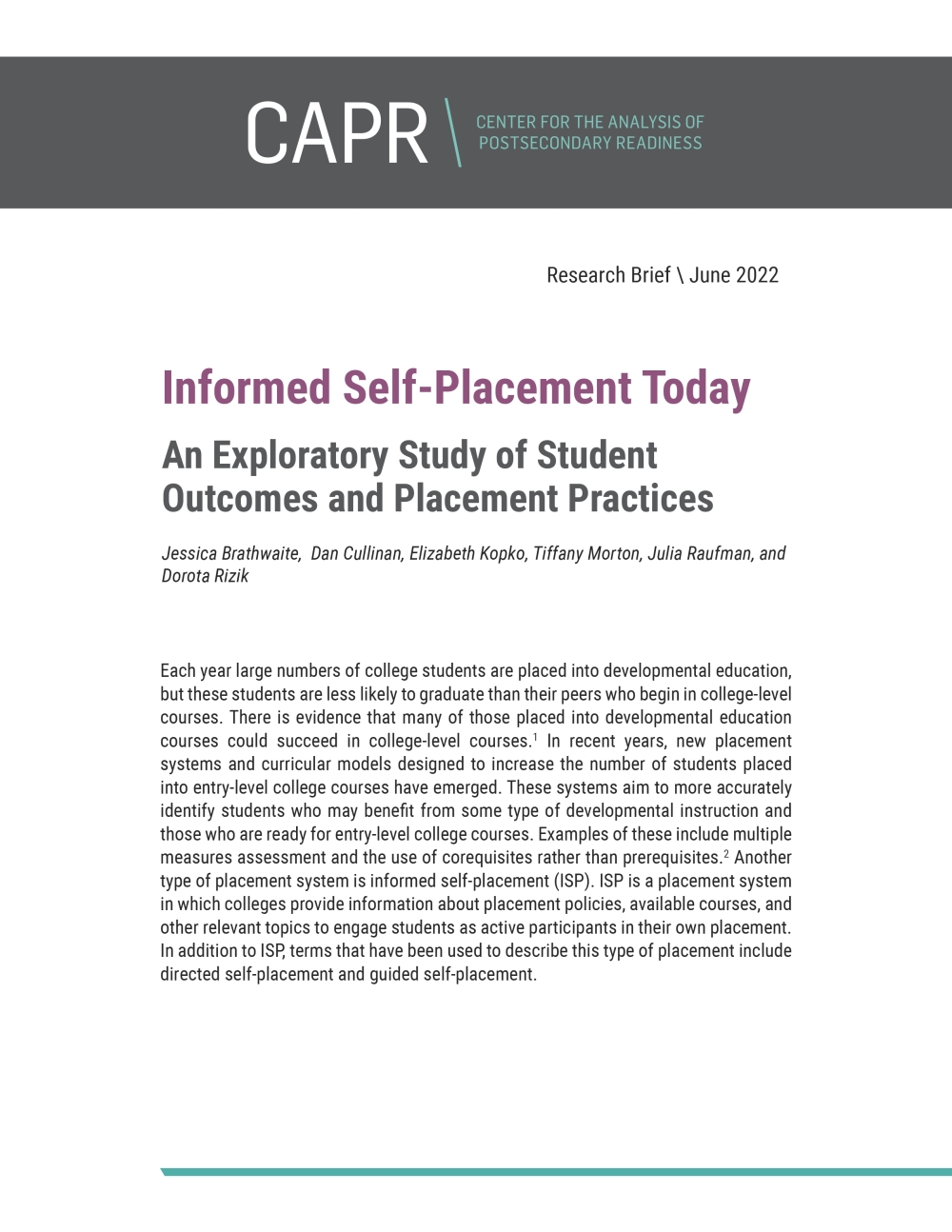
In response to research raising concerns about developmental placement, new placement systems and curricular models designed to increase the number of students placed into entry-level college courses have emerged in recent years. These systems aim to more accurately identify students who may benefit from some type of developmental instruction and those who are ready for entry-level college courses. This CAPR brief presents findings of an exploratory study of informed self-placement (ISP), a placement system in which colleges provide information about placement policies, available courses, and other relevant topics to engage students as active participants in their own placement. ISP, which is also called guided self-placement or directed self-placement, is of interest because it does not rely solely, if at all, on standardized test scores, which research shows are not reliable predictors of performance in college. Moreover, many colleges adopted ISP during the COVID-19 pandemic, when this study began, because they experienced difficulty administering standardized tests and were seeking reliable placement methods that could be easily used in a virtual setting.
The study examined course enrollment and completion trends among students placed using ISP practices and sought to document varied approaches to ISP. The researchers collected demographic and outcome data on students’ math and English course enrollments and completions over the last five academic years at three Nevada colleges offering associate and bachelor’s degrees. They also interviewed assessment and placement scholars and representatives of higher education systems and institutions currently implementing some form of ISP.
The brief provides a taxonomy of various ISP systems, shares descriptive data on course enrollment and completion, and identifies important equity and access considerations for states and institutions interested in implementing ISP. Although more research is needed to understand the causal impacts of ISP on student outcomes, the data suggest that ISP has the potential to improve students’ access to college-level coursework.
This exploratory study accompanies the CAPR brief Reviewing the Research on Informed Self-Placement: Practices, Justifications, Outcomes, and Limitations by Tiffany Morton.
